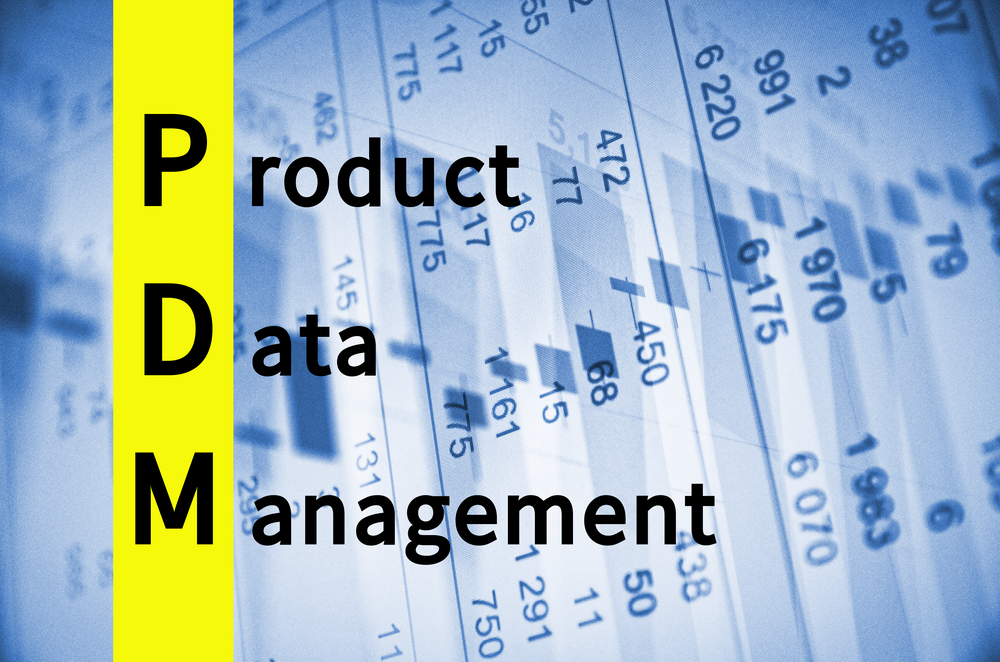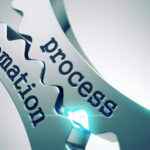
Mastering Manufacturing with Product Data Management Software
Innovation, precision, and efficiency reign supreme for manufacturers of complex, discrete products. Manufacturing companies are always working to improve processes, cut costs, and deliver good products on time in today’s competitive market.
Many organizations use Product Data Management (PDM) software to achieve these goals. PDM is a powerful tool that can change how you manage and work together on product data. In this blog post, we’ll dive into the world of PDM software for manufacturing. We’ll explore its benefits, the essential requirements for successful implementation, and the decision-making process for adopting it in your company.
Defining Product Data Management Software
At its core, product data management (PDM) software is a comprehensive solution designed to manage the entire lifecycle of a product’s data. From initial concept and design to manufacturing, distribution, and beyond, PDM becomes your central repository. It houses all product information, including CAD (Computer-Aided Design) files, bills of materials (BOMs), specifications, revisions, documentation, and more.
With PDM software, all stakeholders have access to the most up-to-date and accurate product and design data. This helps foster collaboration, reduce errors, and streamline your production process.
Solving Manufacturing Challenges with PDM Software
Manufacturing companies face numerous challenges, and PDM software specifically addresses many of them.
1. Data Disarray
Without PDM software, managing product data can be chaotic, with files scattered across various folders and departments. PDM software brings order to this chaos by centralizing all data in a structured manner.
2. Version Control
Keeping track of multiple versions of design files and documents can be a nightmare. PDM software offers robust version control, ensuring the right people always work with the latest revisions.
3. Collaboration
Modern manufacturing is a team effort. Product data management software fosters collaboration by providing a platform for engineers, designers, and other stakeholders to work together seamlessly, even across geographic boundaries. Access to real-time data is part of the PDM system.
4. Compliance and Documentation
Many industries require strict adherence to regulations and standards. PDM software helps ensure compliance by keeping detailed records and providing easy access to documentation.
Essential Requirements for Good PDM
Choosing the right PDM software is critical. Here are some essential requirements to consider:
1. Scalability: The software should grow with your business and be able to handle increasing data volumes and more users.
2. Integration: Ensure seamless integration with your existing tools and systems, including computer-aided design CAD software and Enterprise Resource Planning (ERP) systems.
3. User-Friendly Interface: A user-friendly interface encourages adoption throughout your organization.
4. Data Security: Robust security measures are a must to protect your sensitive product data.
5. Version Control: A reliable version control system prevents errors and confusion.
Product Data Management and Your ERP Software
Before purchasing a stand-alone PDM tool that will need to be integrated with your business systems, talk with your manufacturing ERP provider. Many ERPs have basic product data capabilities. Some software like Frontier, which specializes in solutions for complex product manufacturing, may already have what you need.
Frontier has enhanced product management tools, including a PDM module. Frontier Product Data Management (PDM) has the tools needed to define and maintain the extensive product and production information required to drive an integrated ERP solution.
Frontier Product Data Management, along with Product Configuration Management and Engineering Change Management, work together to support the engineering requirements of companies that manufacture both stock and custom-configured products.
Frontier PDM Supports:
- Centralized item master file across all plants/warehouses to maintain standardized product naming conventions, categories, and descriptions
- Production-related information maintained by plant/warehouse to account for production variations between facilities
- Production routings to define the manufacturing processes, along with acceptable alternatives, associated with the production of the product
- Product structures (BOMs) to define the required components, along with acceptable alternatives, associated with the production of the product
- Production departments, work centers, and machines to define cost and capacity constraints associated with the production facility
- Inventory replenishment guidelines to drive material planning and suggested replenishment orders
- Foundation cost data for calculating rolled costs and the associated overhead of all manufactured products
PDM software must work with your manufacturing processes. Any changes must be recorded and synced with your manufacturing ERP software to improve your production processes going forward.
If product data management is a core concern for your organization, consider an ERP with advanced PDM functionality designed right in. This approach can streamline operations by providing a unified platform for all your business processes.
Deciding If You Need PDM Software
To determine whether your company needs product data management software, consider the following questions:
1. Do you experience data-related bottlenecks in your production process?
2. Is collaboration on product data a challenge for your teams?
3. Do you have compliance and documentation requirements that demand rigorous data management?
4. Are you looking to improve version control and reduce errors in your designs?
If you answered “yes” to any of these questions, it’s worth exploring robust product data management solutions.
What to Look for When Considering PDM Software
When evaluating product data management solutions, consider the following factors:
1. Functionality: Ensure it meets your specific needs, including CAD integration, version control, and collaboration features.
2. Scalability: Will it grow with your business?
3. Integration: Can it seamlessly integrate with your existing tools and systems?
4. User Adoption: Is the user interface friendly and easy to use?
5. Security: Does it provide robust data security measures?
FAQs About Product Data Management Software
Q1: Can PDM software work with multiple CAD systems?
Yes, many PDM solutions support integration with multiple CAD systems, ensuring compatibility with all your design tools.
Q2: Is PDM software suitable for small businesses?
PDM software can benefit businesses of all sizes, but small businesses should look for solutions that are cost-effective and scalable.
Q3: What’s the difference between PDM and PLM (Product Lifecycle Management) software?
PDM primarily focuses on managing product data, while PLM encompasses a broader range of product-related processes, including design, manufacturing, and maintenance. Many of these PLM activities are part of an ERP software system for manufacturers such as Friedman Frontier ERP.
In conclusion, Product Data Management (PDM) software is a powerful ally for manufacturing companies looking to streamline their operations, enhance collaboration, and ensure data accuracy. Whether you choose stand-alone PDM software or integrate it into your ERP system depends on your unique requirements. By carefully evaluating your needs and considering the essential requirements for effective PDM implementation, you can pave the way for greater efficiency and success in the world of manufacturing.
For more information about Frontier ERP’s Product Data Management solutions, contact us today.



